Welcome to the Boston Recycling Guide, your comprehensive resource for understanding recycling practices in the city. This guide helps residents make informed decisions about waste management, ensuring a sustainable future for Boston through proper recycling techniques and community involvement.
Overview of Boston’s Recycling Program
Boston’s recycling program is designed to promote sustainability and reduce waste through comprehensive curbside collection and specialized disposal options. Mandatory for buildings with over six units since 2003, the program emphasizes proper separation of recyclables and prohibits items like plastic bags and Styrofoam. Residents can utilize tools like the Recyclopedia search tool to clarify what can be recycled. The city also focuses on education and community engagement to ensure effective participation and minimize contamination in the recycling stream.
Importance of Recycling in Boston
Importance of Recycling in Boston
Recycling is crucial for Boston’s environmental sustainability, reducing landfill use and conserving natural resources. It helps lower greenhouse gas emissions and promotes a circular economy. Proper recycling supports public health by reducing pollution and creating cleaner communities. Educating residents about recycling fosters a culture of responsibility, ensuring a healthier environment for future generations. By participating, Bostonians contribute to the city’s long-term goals of waste reduction and environmental stewardship, making recycling a vital practice for all.
Curbside Recycling Basics
Boston’s curbside recycling program offers weekly collections for eligible materials, making it convenient for residents to contribute to sustainability. Proper preparation ensures efficiency and effectiveness.
What Can Be Recycled Curbside in Boston
Boston’s curbside recycling accepts paper, cardboard, glass bottles, jars, metal cans, and certain plastics. Clean and sorted materials are collected weekly. Prohibited items include plastic bags, styrofoam, and food waste. Ensure items are properly prepared for efficient processing. For specific item guidance, use the Recyclopedia search tool. This program aims to maximize recyclable materials while minimizing contamination, helping Boston achieve its sustainability goals. Participation is crucial for a greener city.
Items Prohibited in Curbside Recycling
Plastic bags, styrofoam, food waste, and hazardous materials are not accepted in Boston’s curbside recycling. Soiled or contaminated items, textiles, and electronics should also be excluded. Proper disposal of these items through designated facilities ensures efficient recycling processes and prevents contamination. Adhering to these guidelines supports the city’s sustainability efforts and maintains the effectiveness of its waste management systems.
Proper Preparation of Recyclables
Properly preparing recyclables ensures efficient processing and reduces contamination. Rinse food and liquid residues from containers, and remove lids and caps. Avoid bagging recyclables, as loose items are processed more effectively. Flatten cardboard and paper products to save space. Keep materials clean and free from contaminants like food or liquids. Check for specific preparation guidelines for glass, metal, and plastic items. Proper preparation helps maintain the quality of recyclables and supports Boston’s recycling goals.
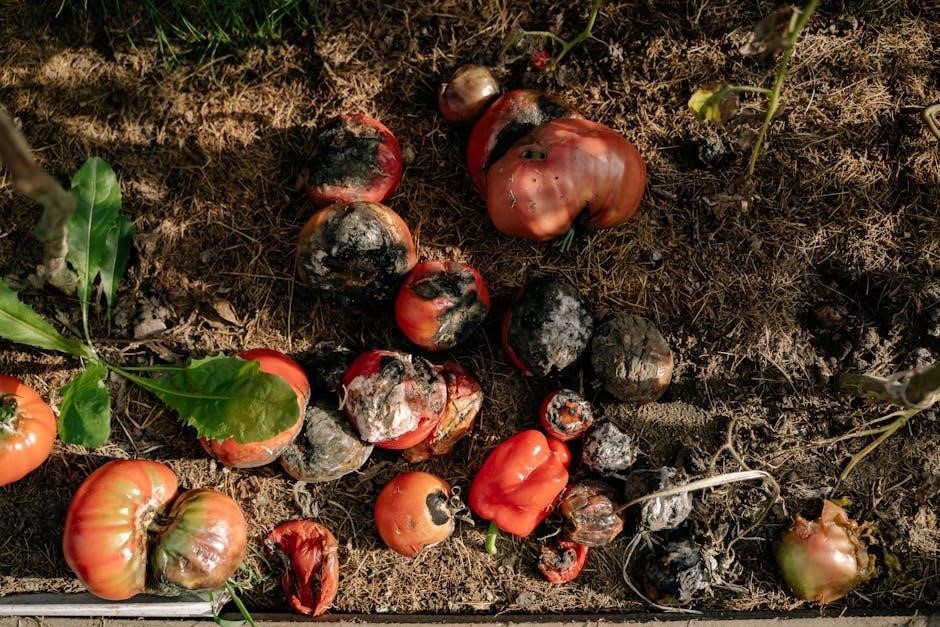
Special Materials Recycling
Boston offers specialized recycling programs for unique items like electronics, batteries, and hazardous waste. These programs ensure safe disposal and prevent environmental harm, promoting sustainability.
Electronic Waste Recycling in Boston
Boston provides designated facilities for recycling electronic waste, such as computers, phones, and televisions. These items contain hazardous materials and must not be disposed of in regular trash. Residents can drop off e-waste at specific locations, ensuring safe processing and environmental protection. Proper recycling of electronics helps conserve resources and prevents harmful substances from contaminating landfills. Boston encourages responsible e-waste disposal through convenient options and educational programs, promoting sustainability and public health.
Battery Disposal and Recycling
Boston residents must dispose of batteries properly to prevent environmental harm. Household batteries, including alkaline and lithium-ion types, should not be placed in regular trash. Designated drop-off locations throughout the city accept batteries for safe recycling. Boston encourages residents to check the Recyclopedia tool for specific guidance on battery disposal. Proper recycling helps conserve resources and reduce hazardous waste in landfills, supporting Boston’s sustainability goals and promoting a cleaner environment for future generations.
Hazardous Waste Disposal Options
Boston provides safe disposal options for hazardous waste, such as chemicals, paints, and electronics, to protect the environment. Residents can participate in scheduled household hazardous waste collection days or use permanent drop-off locations. These facilities accept items like batteries, paints, and electronics. Proper disposal prevents harmful substances from contaminating landfills and waterways. Use the Recyclopedia tool for guidance on handling hazardous waste responsibly, ensuring compliance with Boston’s environmental regulations and sustainability goals.
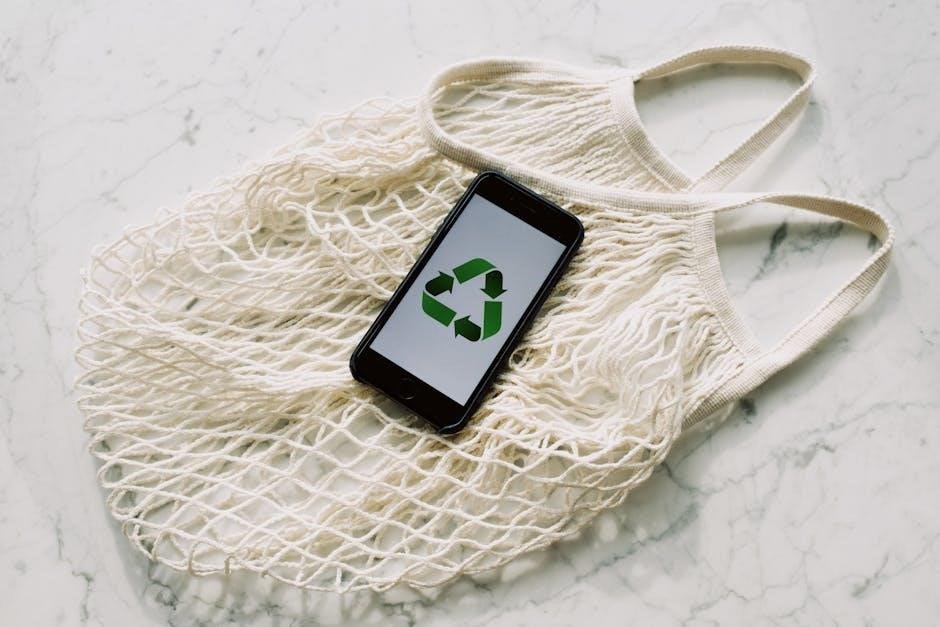
Food Waste Composting
Boston offers food waste composting programs to reduce landfill waste and create nutrient-rich soil. Residents can compost organic scraps, supporting sustainability and reducing environmental impact effectively.
Food Waste Composting Programs in Boston
Boston offers food waste composting programs to help residents reduce landfill waste. These programs include curbside collection for eligible households and drop-off locations across the city. Participants receive bins for organic materials like fruit peels, vegetable scraps, and bread. The collected waste is processed into nutrient-rich compost for local gardens and parks.
By composting food waste, residents contribute to a sustainable Boston. Proper preparation, such as rinsing items and avoiding meat and dairy, ensures successful composting. Learn more about enrollment and guidelines through the city’s recycling resources or the Recyclopedia search tool.
Drop-Off Locations for Food Waste
Boston provides convenient drop-off locations for food waste, making it easier for residents to participate in composting. These sites are strategically placed across the city, including at local recycling centers and some community gardens. Residents can deposit organic materials like fruit peels, vegetable scraps, and bread. Using the Recyclopedia search tool or the city’s website, residents can find the nearest location. Properly separating and preparing food waste ensures it is processed efficiently, contributing to a greener Boston.
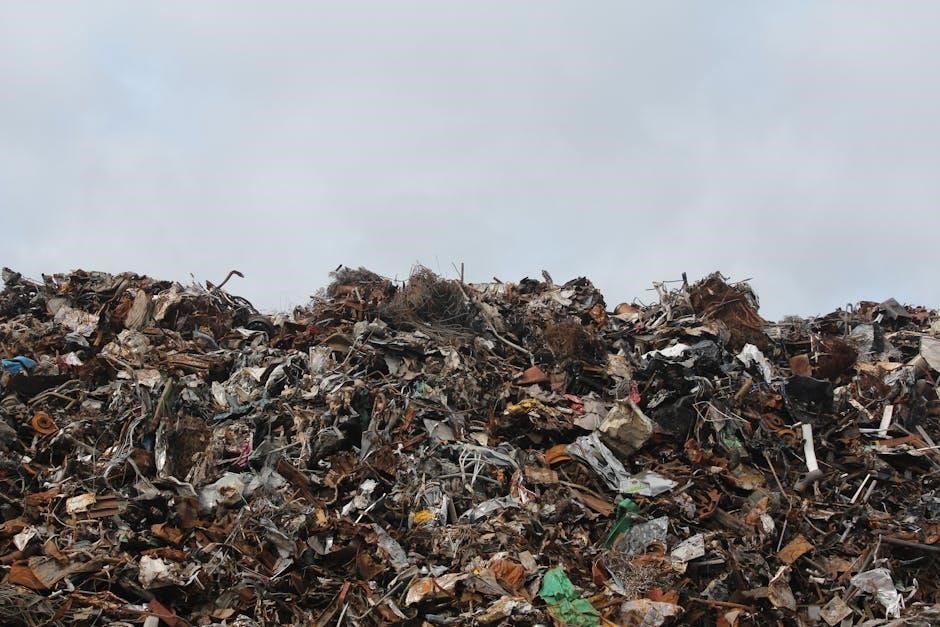
Bulk Item Recycling
Boston offers bulk item recycling options for large household items. Residents can schedule bulk pickups or use designated drop-off centers, ensuring proper disposal and recycling.
Recycling Options for Bulk Furniture
Boston residents can recycle bulk furniture through scheduled curbside pickups or drop-off at designated centers. Large items like sofas and mattresses require advance booking via the city’s website or app. Ensure items are clean and dismantled if possible. Donate reusable furniture to local charities or thrift stores for redistribution. Proper disposal helps reduce landfill waste and supports sustainable practices in Boston.
Appliance Recycling in Boston
Boston offers specialized programs for appliance recycling to ensure safe disposal of large household items. Residents can schedule bulk pickups for refrigerators, stoves, and dishwashers through the city’s waste management system. Appliances containing hazardous materials, like refrigerators with freon, require special handling. Drop-off locations and local recycling centers also accept these items. Proper recycling of appliances helps conserve resources and reduces environmental harm. Always check the city’s guidelines before disposing of large appliances to ensure compliance with local regulations.

Yard Waste Recycling
Welcome to the section on yard waste recycling in Boston. This guide covers the proper disposal and recycling of leaves, branches, and grass clippings to promote sustainability.
Seasonal Yard Waste Collection Dates
Boston offers seasonal yard waste collection services, typically available from spring to fall. Residents should check the city’s website for exact dates, as schedules vary by neighborhood. Collections are usually weekly during peak seasons, with specific days designated for yard waste. Winter collections are limited, focusing on leaves and branches; Residents are encouraged to use the city’s recycling app for notifications and updates. Properly prepared yard waste ensures efficient collection and recycling.
Preparing Yard Waste for Recycling
To properly prepare yard waste for recycling in Boston, residents should bundle branches and twigs with string or place them in paper bags. Leaves and grass clippings can be left loose or in compostable bags. Materials like dirt, rocks, and plastic bags should be excluded; Yard waste should be placed at the curb on designated collection days. Ensure items are neatly arranged to facilitate efficient pickup. Proper preparation helps maintain the quality of recyclable materials and supports Boston’s environmental goals.
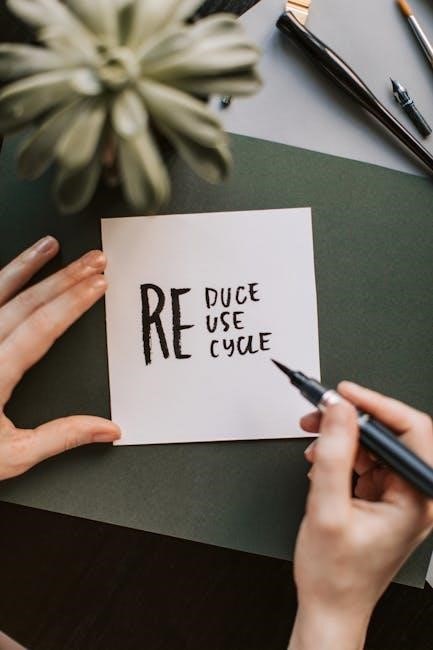
Boston Recycling Centers
Boston Recycling Centers provide convenient locations for residents to drop off recyclable materials, including paper, glass, and metal. These facilities play a crucial role in promoting sustainability and proper waste management across the city.
Locations of Recycling Centers in Boston
Boston Recycling Centers are strategically located across the city to ensure accessibility. The primary center is at Bittern Way, Boston PE21 7RQ, accepting a wide range of materials. Additionally, there’s a center on Frontage Road, specializing in bulk items and electronics. These facilities operate Monday through Saturday, from 8 AM to 4 PM. Residents can drop off recyclables like paper, glass, and metal. Visit the city’s website for a full list of locations and accepted materials to ensure proper disposal and recycling practices.
Materials Accepted at Recycling Centers
Boston Recycling Centers accept a variety of materials, including paper, cardboard, glass bottles, and metal cans; Plastic bottles and jugs are also accepted, but plastic bags and Styrofoam are prohibited. Electronics, batteries, and appliances are accepted at designated centers. Residents are encouraged to clean items before recycling. Mixed materials should not be bagged together. Visit the city’s website for a detailed list of accepted materials and specific guidelines to ensure proper recycling practices and reduce contamination in the recycling stream.
Boston promotes community recycling through local programs, events, and partnerships. Residents participate in neighborhood cleanups, workshops, and outreach campaigns to reduce waste and increase awareness.
Local Recycling Programs and Events
Boston offers various recycling programs and events to engage residents in sustainability efforts. Workshops, neighborhood cleanups, and educational campaigns are organized to promote proper recycling practices. The city hosts events like “Talking Trash & Recycling” to educate residents on waste management. Additionally, local partnerships with organizations and businesses help expand recycling initiatives. These programs aim to foster a culture of environmental responsibility and community involvement in reducing waste and improving recycling rates across Boston.
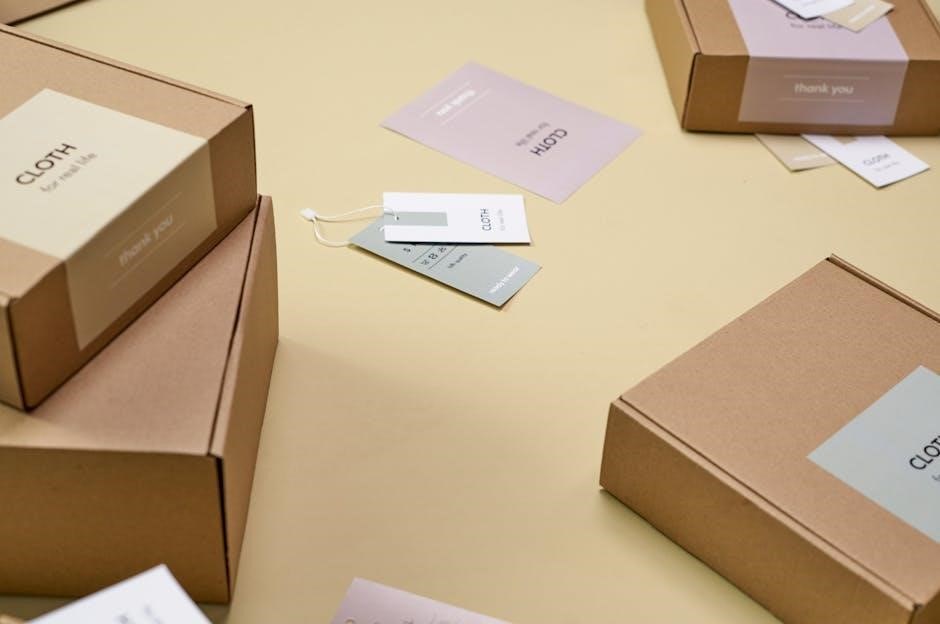
Community Recycling Initiatives
Partnerships for Waste Reduction
Boston collaborates with local organizations, businesses, and residents to reduce waste through innovative partnerships. These initiatives include joint programs with environmental groups, educational campaigns, and community events. The city works closely with entities like the Massachusetts Department of Environmental Protection to enhance recycling infrastructure and awareness. By fostering these partnerships, Boston aims to create a unified approach to waste reduction, encouraging collective action and shared responsibility for a sustainable future.
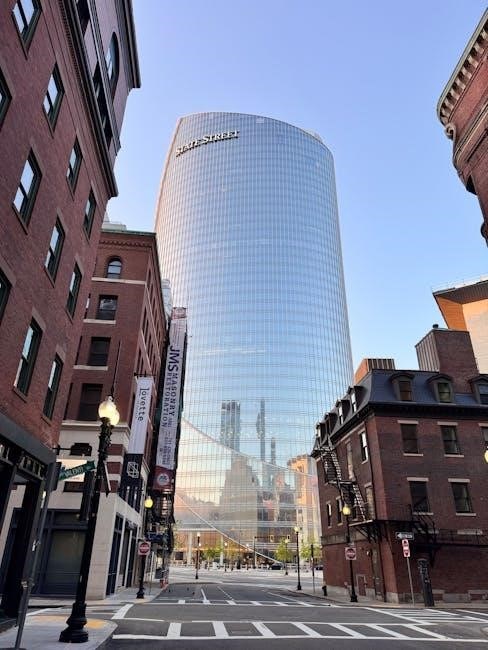
Education and Outreach
Boston’s Education and Outreach programs engage residents through workshops, school initiatives, and community events, promoting proper recycling practices and fostering environmental awareness citywide.
Recycling Education for Residents
Boston offers recycling education through workshops, online tools, and community events. These programs help residents understand what can be recycled, proper preparation methods, and the impact of their efforts. The city’s Recyclopedia tool is a key resource, allowing residents to search specific items for disposal guidance. Educational initiatives also address common mistakes, such as wish-cycling, to improve recycling accuracy and reduce contamination. By fostering awareness, Boston empowers residents to contribute effectively to sustainability goals.
Workshops and Community Engagement
Boston hosts interactive workshops and community events to educate residents on recycling best practices. These sessions cover topics like proper material sorting and reducing contamination. The city collaborates with local organizations to engage residents, fostering a sense of responsibility for sustainability. Workshops often include hands-on activities and Q&A sessions, ensuring participants feel confident in their recycling efforts. Community engagement initiatives also encourage residents to share tips and participate in local cleanup programs, strengthening Boston’s commitment to environmental stewardship and waste reduction.
Enforcement of Recycling Regulations
Boston enforces recycling laws through regular monitoring and penalties for non-compliance. Proper waste separation is mandatory, ensuring adherence to environmental standards and promoting a sustainable urban environment.
Recycling Laws and Regulations in Boston
Boston requires residents, businesses, and institutions to participate in recycling programs. Since 2003, buildings with over six units must provide recycling bins. Plastic bags and Styrofoam are banned from recycling. Non-compliance can result in penalties, emphasizing proper waste sorting. These regulations aim to reduce landfill use and promote sustainability, aligning with state and city environmental goals. Enforcement ensures adherence to these rules, crucial for maintaining effective waste management and fostering a greener Boston.
Consequences of Non-Compliance
Non-compliance with Boston’s recycling regulations can result in penalties, including fines for improper waste disposal. Businesses and institutions may face enforcement actions for failing to provide recycling programs. Contaminated recyclables can lead to rejection of materials, increasing costs. Repeat offenses may escalate penalties, emphasizing the importance of adhering to guidelines. Compliance ensures efficient waste management and supports Boston’s environmental goals, benefiting the community and promoting sustainability.
Technology and Tools for Recycling
Boston offers innovative tools like the Recyclopedia search tool, helping residents determine proper disposal methods. Apps and online resources provide guidance, enhancing recycling accuracy and efficiency citywide.
Recyclopedia Search Tool for Recyclables
The Recyclopedia Search Tool is an essential resource for Boston residents, providing instant information on how to recycle or dispose of specific items. By simply typing the name of an item, users receive clear guidance on proper disposal methods. This tool helps reduce confusion and encourages accurate recycling practices. Its user-friendly interface and comprehensive database make it a vital asset for enhancing recycling efficiency across the city.
Benefits of Using the Recyclopedia Tool
Using the Recyclopedia Tool offers numerous benefits, including reducing recycling errors and promoting sustainability. It provides quick, accurate information on item disposal, ensuring materials are processed correctly. This tool fosters environmental responsibility by minimizing contamination in recycling streams. Additionally, it educates users about proper waste management practices, empowering them to make informed decisions. By utilizing the Recyclopedia Tool, Boston residents contribute to a more efficient and effective recycling system, benefiting both the community and the environment.

Common Recycling Mistakes
Common recycling mistakes include including non-recyclable items like plastic bags and Styrofoam, which contaminate recycling streams. “Wish-cycling” and improper sorting are frequent errors that hinder effective recycling processes.
Understanding “Wish-Cycling”
“Wish-cycling” refers to the practice of placing non-recyclable items in recycling bins with the hope they will be recycled. This behavior, while well-intentioned, often leads to contamination of recyclable materials. Common examples include plastic bags, Styrofoam, and soiled food containers. Contaminated materials are typically rejected during processing, reducing the efficiency of recycling programs. To avoid wish-cycling, residents should verify the recyclability of items using tools like Boston’s Recyclopedia search tool, ensuring only acceptable materials enter the recycling stream.
Examples of Common Recycling Errors
Common recycling mistakes in Boston include placing plastic bags, Styrofoam, and soiled food containers in curbside bins. These items often lead to contamination. Residents also frequently mix recyclables with non-recyclable materials, such as broken glass or ceramics, which cannot be processed. Additionally, liquids left in bottles or cans can ruin entire batches of recyclables. Understanding these errors helps improve the efficiency of Boston’s recycling programs and ensures materials are properly processed.
Future of Recycling in Boston
Boston is committed to advancing its recycling programs, investing in improved infrastructure, and leveraging technology to enhance sustainability and community engagement for a greener future.
Planned Improvements to Recycling Programs
Boston plans to expand its curbside recycling services, increase public education, and implement advanced waste sorting technologies. These improvements aim to boost recycling rates, reduce contamination, and ensure all residents have access to proper recycling resources. Additionally, the city will enhance partnerships with local organizations to promote waste reduction and develop user-friendly tools, such as the Recyclopedia search tool, to help residents make informed decisions about recyclables.
Boston’s Long-Term Recycling Goals
Boston aims to achieve zero waste by 2050 through enhanced recycling infrastructure and education. The city plans to increase recycling rates significantly, reduce landfill reliance, and promote sustainability. Long-term goals include expanding curbside recycling, improving waste sorting technologies, and fostering community engagement. By 2030, Boston targets a 70% recycling rate, aligning with statewide environmental goals. These efforts will help Boston become a national model for urban recycling and sustainability, ensuring a greener future for generations to come.
The Boston Recycling Guide provides essential insights to help residents contribute to a sustainable future. By understanding and participating in recycling programs, everyone can make a meaningful impact.
Final Thoughts on Boston Recycling Guide
The Boston Recycling Guide serves as a vital resource for residents, providing clear guidance on sustainable waste management. By understanding what can and cannot be recycled, residents can significantly reduce landfill waste. Proper preparation of recyclables and avoidance of common errors, like “wish-cycling,” are crucial for effective recycling. Community involvement and education are key to fostering a culture of environmental responsibility. By following the guidelines outlined in this guide, Bostonians can contribute to a cleaner, greener city for future generations.
Encouragement to Participate in Recycling
Every Boston resident plays a crucial role in fostering a sustainable future by participating in recycling. Using tools like the Recyclopedia search tool can simplify the process, ensuring items are correctly recycled. By taking small steps, such as properly sorting materials and avoiding “wish-cycling,” individuals contribute significantly to reducing landfill waste. Community involvement in workshops and events can further enhance recycling efforts, making Boston a greener city for future generations. Let’s work together to create a positive environmental impact!
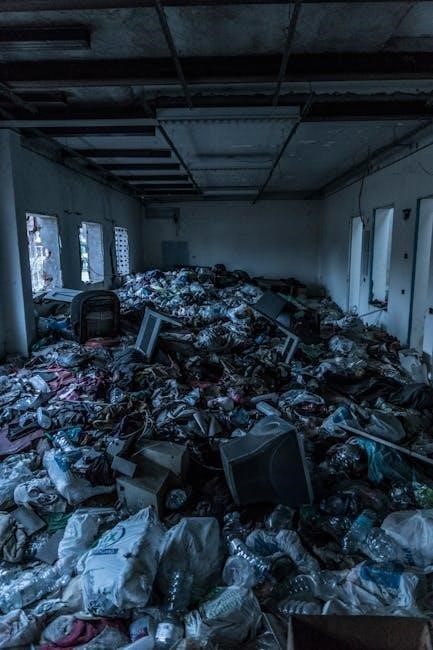
Additional Resources
Explore the Recyclopedia tool and visit the official City of Boston recycling website for detailed guides and updates. Contact recycling services for additional support.
Useful Links for Recycling in Boston
Access the City of Boston Recycling Guide and the MassDEP recycling resources for detailed information. Utilize the Recyclopedia search tool to determine how to recycle specific items. Visit the Environmental Operations Department for updates on programs and services. These resources provide residents with accurate and up-to-date information on recycling practices in Boston, ensuring effective waste management and sustainability efforts.
Contact Information for Recycling Services
For inquiries about recycling services in Boston, contact the Environmental Operations Department at 617-635-4900. Visit the Boston Recycling Guide for detailed information. You can also email recycling@boston.gov or visit the department at 1 City Hall Square, Boston, MA 02201. Additionally, use the Recyclopedia tool or the Solid Waste App for disposal guidance.